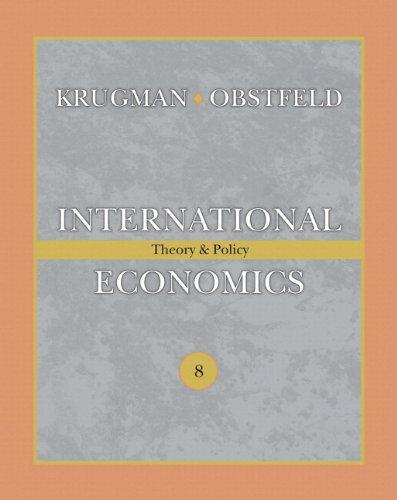Movements in the euro's external exchange rate can be seen as goods-market shocks that have asymmetric effects
Question:
Movements in the euro's external exchange rate can be seen as goods-market shocks that have asymmetric effects on different euro zone members. When the euro appreciated against China's currency in 2007, which country suffered the greater fall in aggregate demand, Germany, which does not compete directly with China in its export markets, or Greece, which does? What would have happened had Greece retained its old currency, the drachma?
the drachma
Fantastic news! We've Found the answer you've been seeking!
Step by Step Answer:
Related Book For 

International Economics Theory & Policy
ISBN: 9780138002121
8th Edition
Authors: Paul R Krugman, Maurice Obstfeld
Question Posted:






